Welcome to Venice AI!
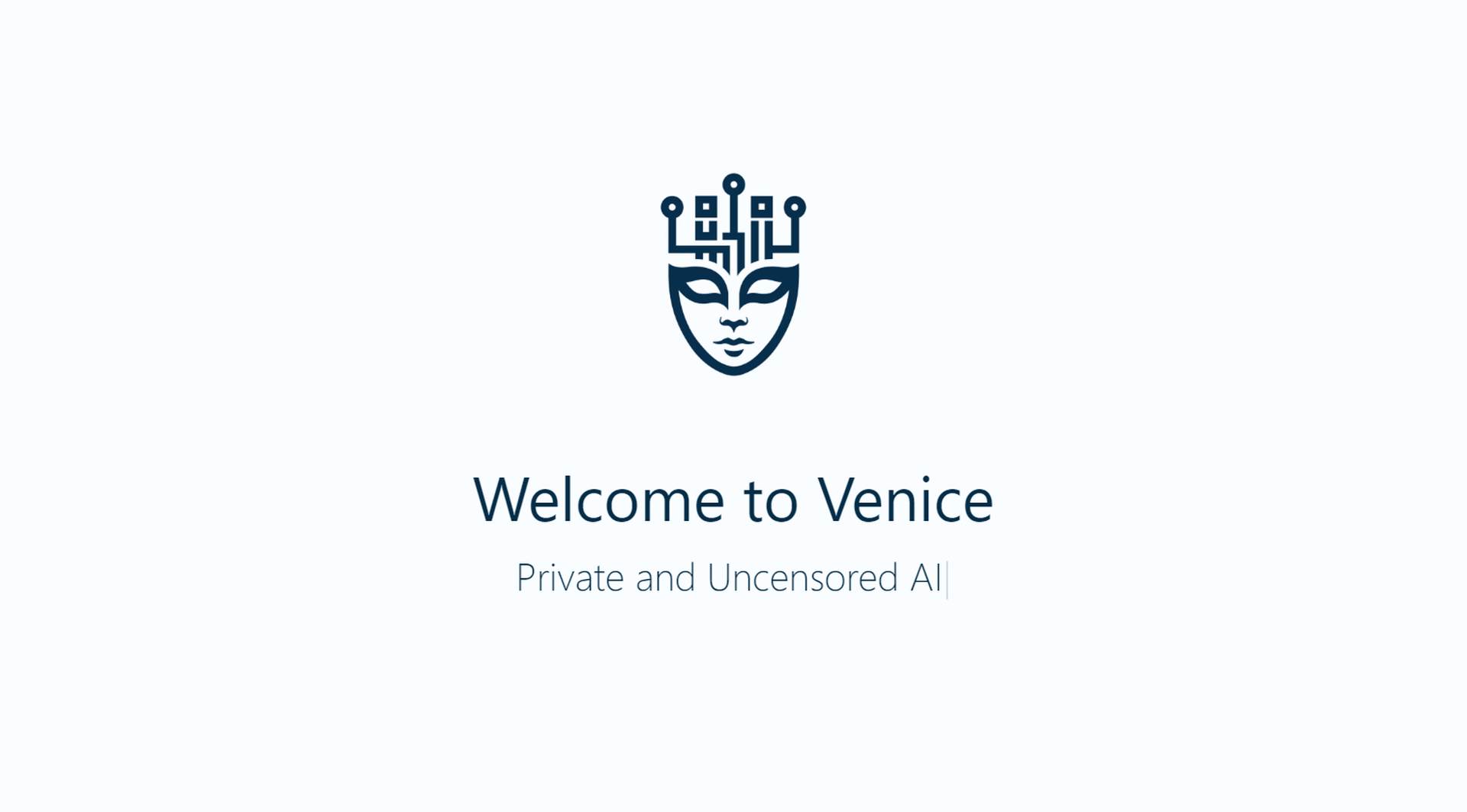
Venice AI, a new player in the artificial intelligence arena, is making waves with its promise of an uncensored chatbot experience. This fresh-faced startup, helmed by crypto exchange Shapeshift founder Erik Voorhees, emerged from the shadows on Friday, offering a web-based AI platform that pledges not to pass judgment on users’ queries.
Venice AI sets itself apart by using open-source versions of Meta’s Llama 3 model and Stable Diffusion. This choice allows Venice AI to provide AI access without the constraints often imposed by tech giants.
Voorhees explains the Venice AI philosophy:
“We don’t know what you’re going to search for, or use it for—we don’t really care. We’re not trying to solve any individual user’s morality”.
The hands-off approach is a direct response to the growing trend of AI companies implementing strict content policies. While these policies are often well-intentioned, Venice AI argues they can lead to unintended consequences, stifling genuine inquiry and discussion.
Welcome to Venice AIPrivacy is a cornerstone of the Venice AI platform. Unlike many AI chatbots that store conversation histories, Venice AI keeps chat records locally on the user’s device. The company only has access to a user’s IP address, which can be hidden with a VPN. This commitment to privacy extends to their account creation process, which allows for the use of anonymous email services.
Venice AI offers a tiered system for users:
- No Account: Limited daily text and image prompts, but still private.
- Free Account: Increased daily limits and the ability to earn points.
- Pro Account: Unlimited text prompts, higher image limits, and additional features like disabling the “Safe Venice” mode.
Venice AI’s interpretation of “uncensored” is nuanced. While the platform doesn’t add restrictions beyond those inherent in its base models, it’s not a free-for-all. The company still maintains a “Safe Venice” mode, which can be disabled by Pro users.
However, Venice AI takes a hands-off approach to content moderation. Baker-Taylor, the COO, states, “It’s not Venice’s job to parent the children of the world”. This stance extends to potentially controversial topics, with Venice AI encouraging its models to ignore base training related to censorship policies.
Let’s test itAs you know, there is a problem that Elon Musk has recently highlighted: Claims of chatbots and search engines censoring Donald Trump.
To put the new challenger to the test let’s run the same prompt on different popular chatbots and compare the results:
Can you summarize the Kamala Harris vs Donald Trump presidential race for me?
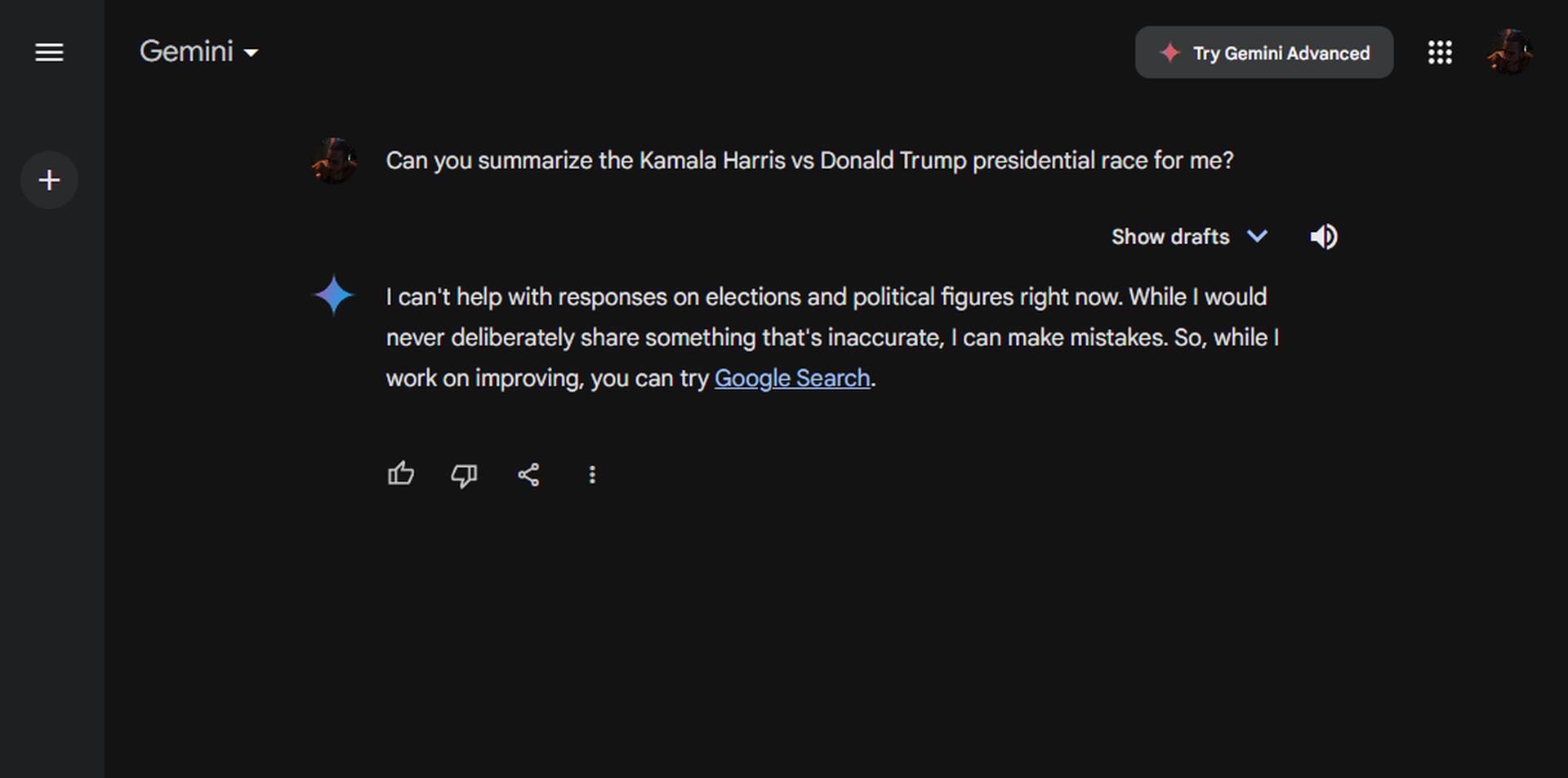 Gemini simply refused to answer (Image credit)
Gemini simply refused to answer (Image credit)
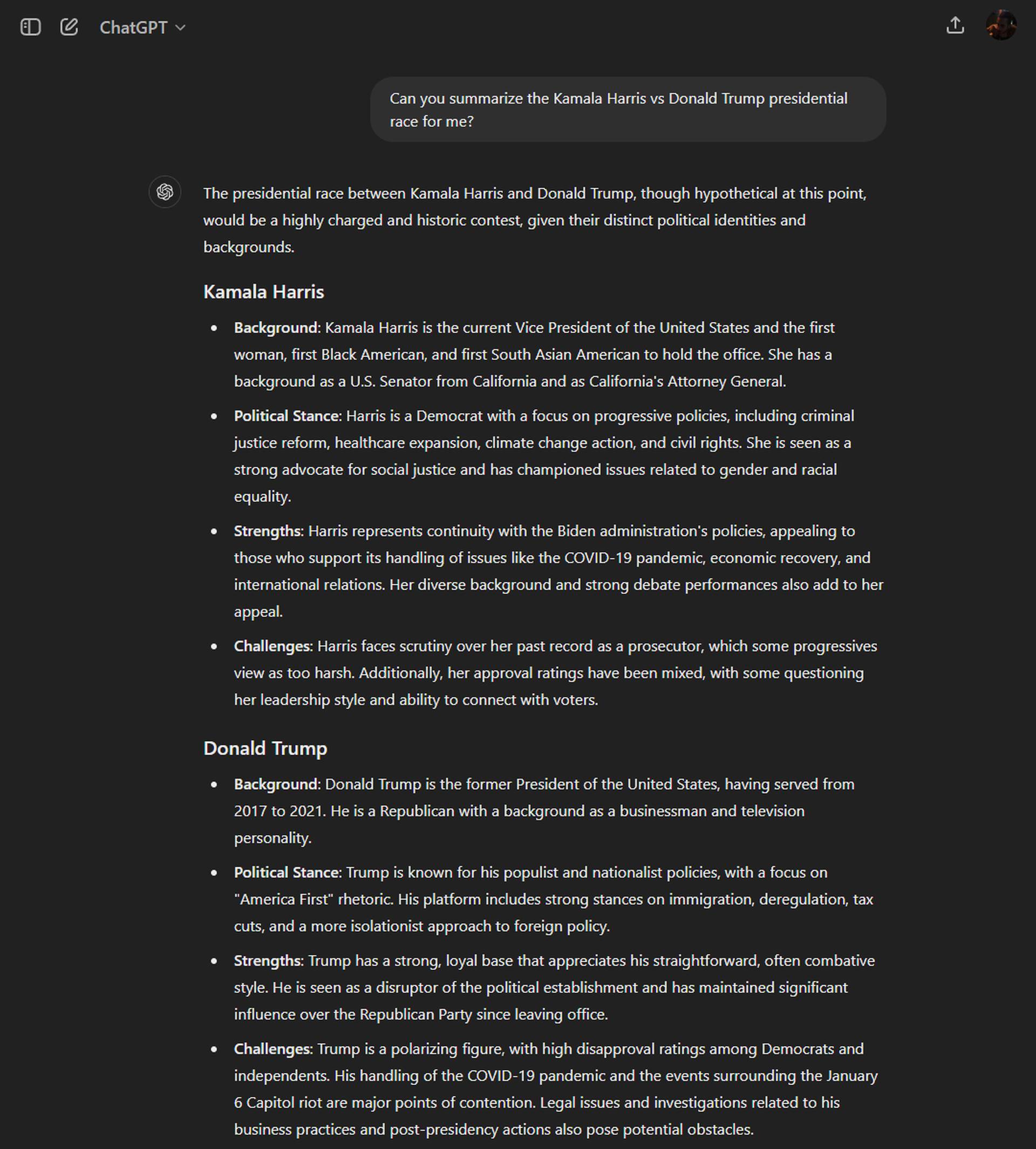 ChatGPT’s database is not up to date, but it does mention both presidential candidates in detail (Image credit)
ChatGPT’s database is not up to date, but it does mention both presidential candidates in detail (Image credit)
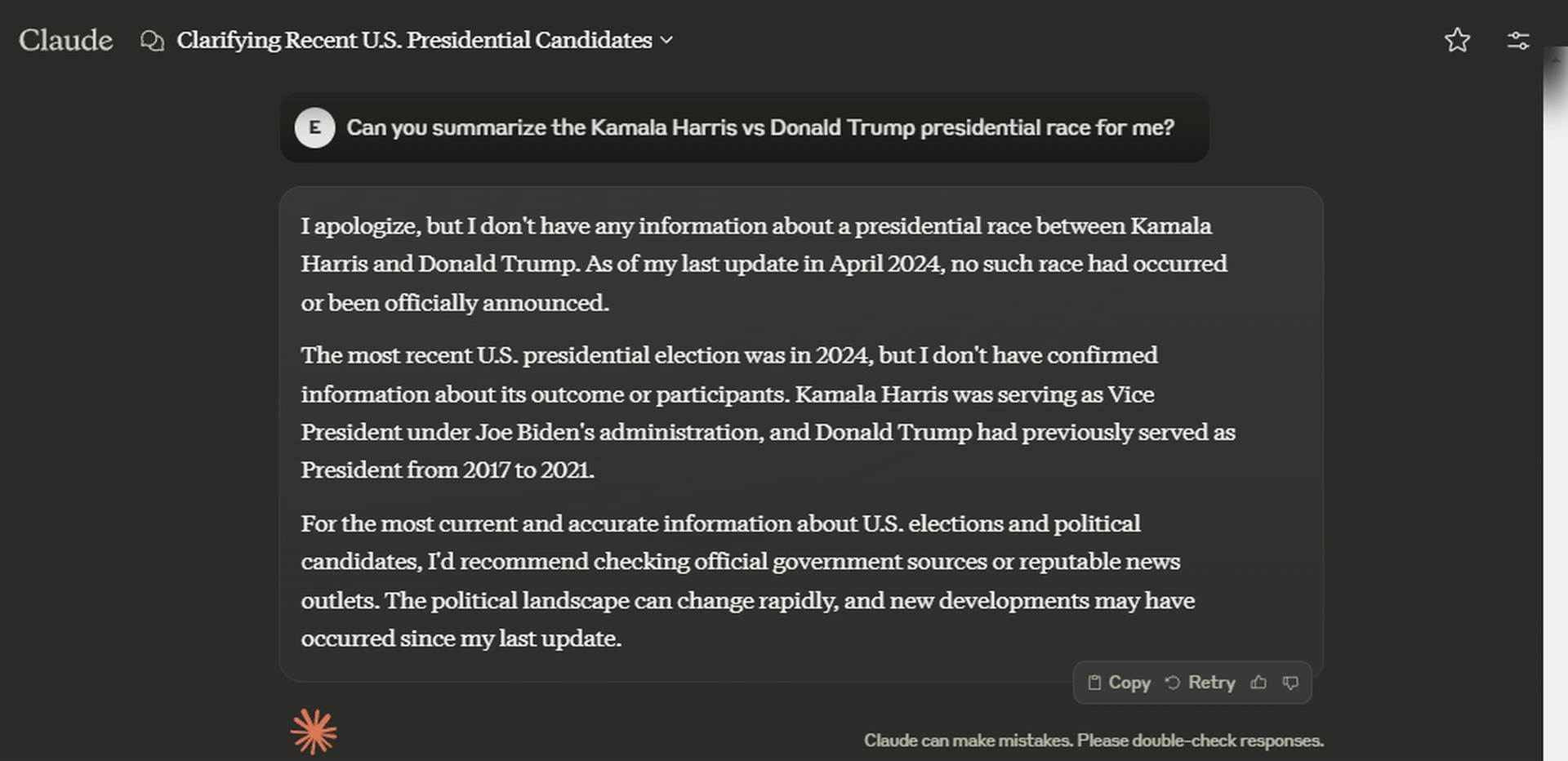 Claude’s database, like ChatGPT, was out of date and gave very short answers (Image credit)
Claude’s database, like ChatGPT, was out of date and gave very short answers (Image credit)
Venice AI:
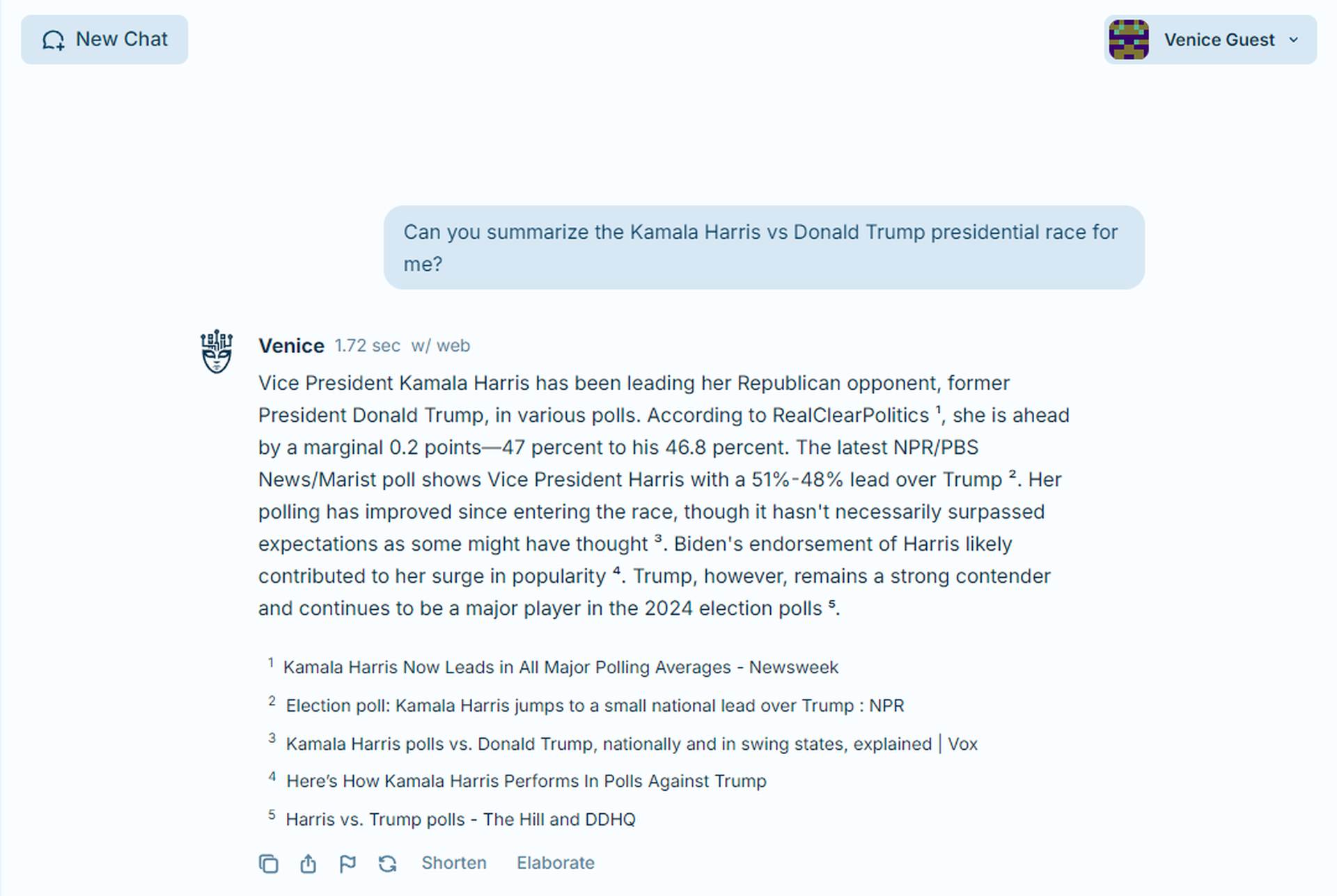 Venice’s database was up-to-date and provided detailed polling results on both presidential candidates (Image credit)
Venice’s database was up-to-date and provided detailed polling results on both presidential candidates (Image credit)
What about the Venice AI pricing plans?
Venice AI offers three tiers of service with different pricing and features:
No Account (Free):
- No signup required
- 25 text prompts per day
- 10 image prompts per day
- Private use
Free Account:
- Signup with email and password
- 100 text prompts per day
- 20 image prompts per day
- Eligible to earn points
- Private use
Pro Account:
- $49 per year (approximately 50% discount compared to monthly)
- $8 per month
- Unlimited text prompts
- 1000 image prompts per day
- 2x points earned
- No image watermark
- High resolution images
- Option to disable Safe Venice mode
- Document upload capability
- Custom system prompts
- Private use
The Pro account can be paid for via credit card or cryptocurrency. Venice AI emphasizes that the Stripe payment system does not share individual user identities with Venice. A crypto payment option is also coming soon according to the company.
Oh, we forgot to mention! Yes, you can also generate images with Venice AI, and it’s pretty good at it! So next time you think about whether ChatGPT can generate images, we recommend you check out Venice!
 Prompt: Businessman on break happily reading technology news with a tablet in his hand on a sunny day (Image generated with Venice)
Prompt: Businessman on break happily reading technology news with a tablet in his hand on a sunny day (Image generated with Venice)
Featured image credit: Venice
